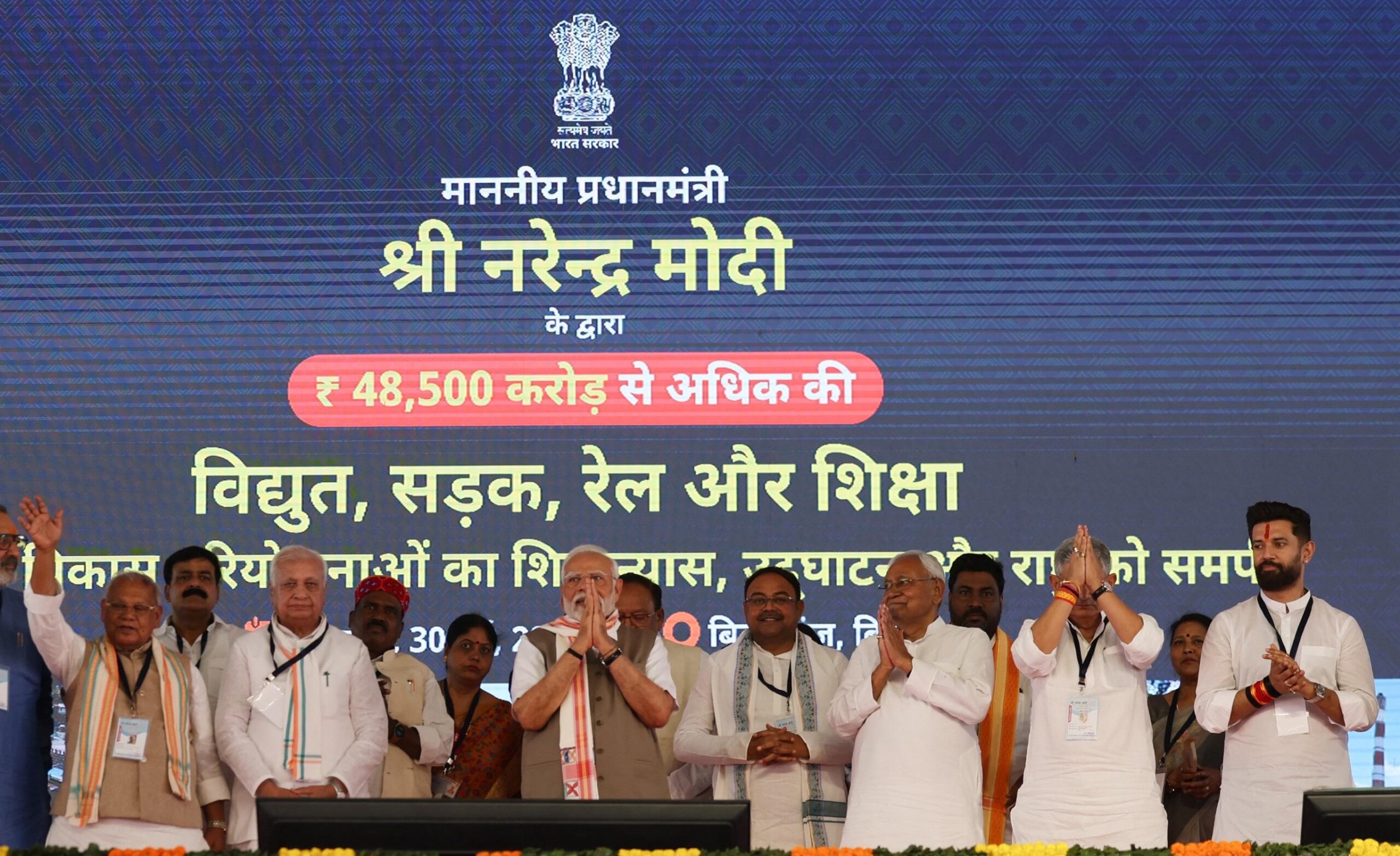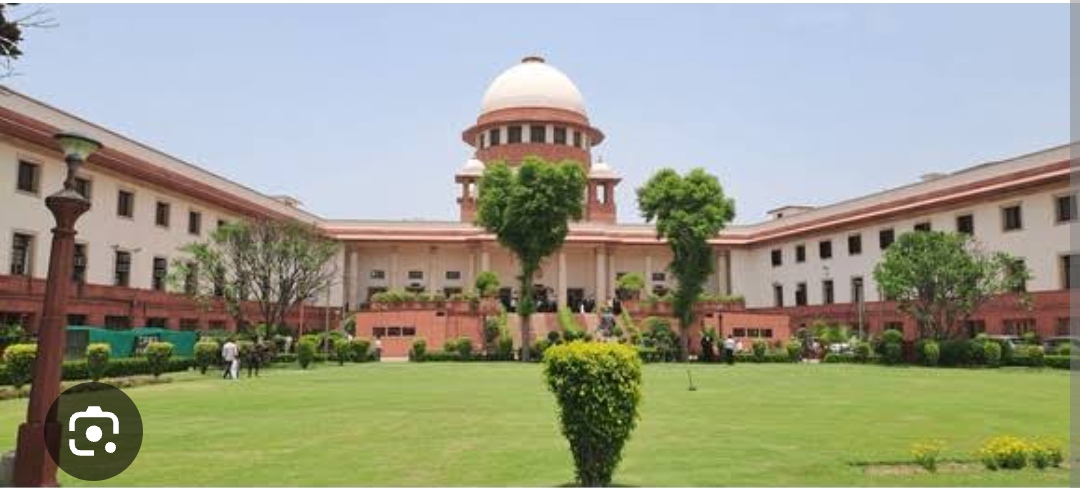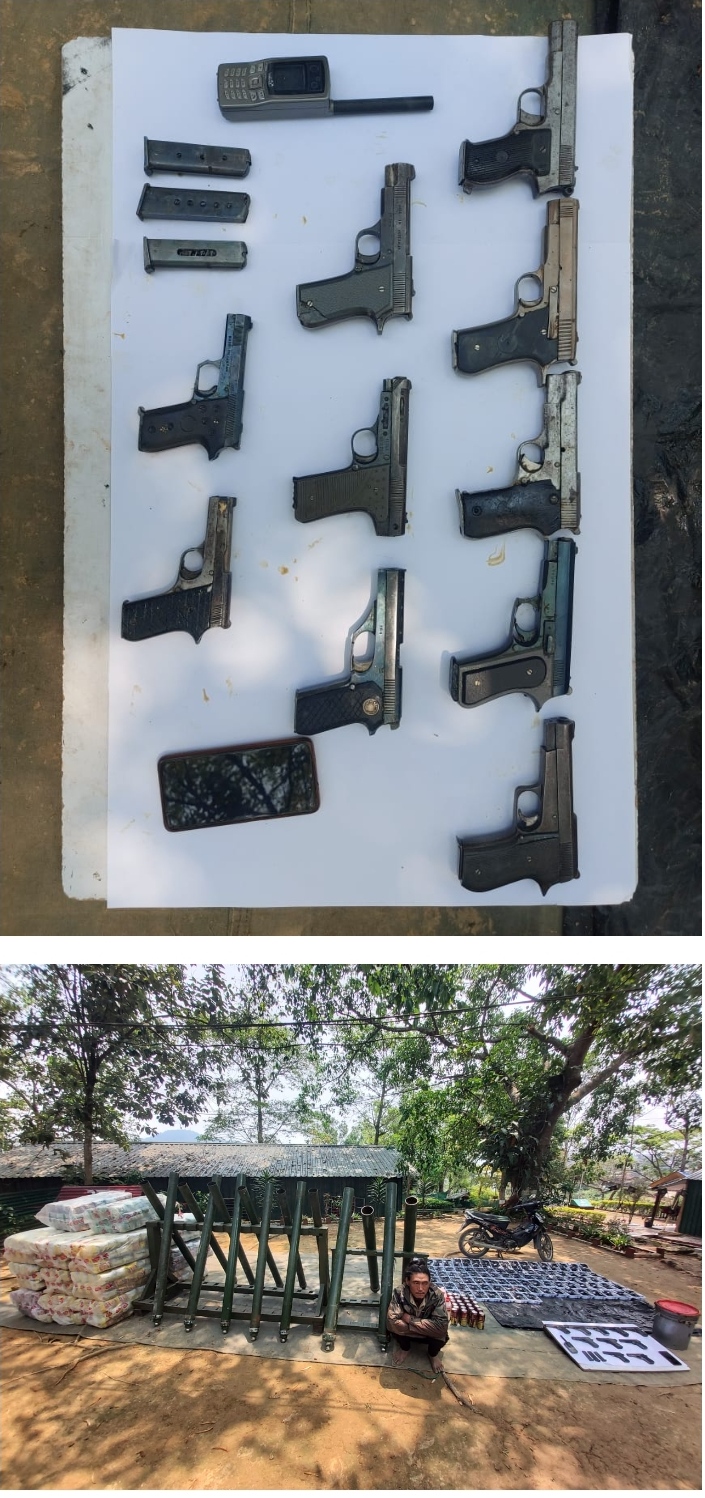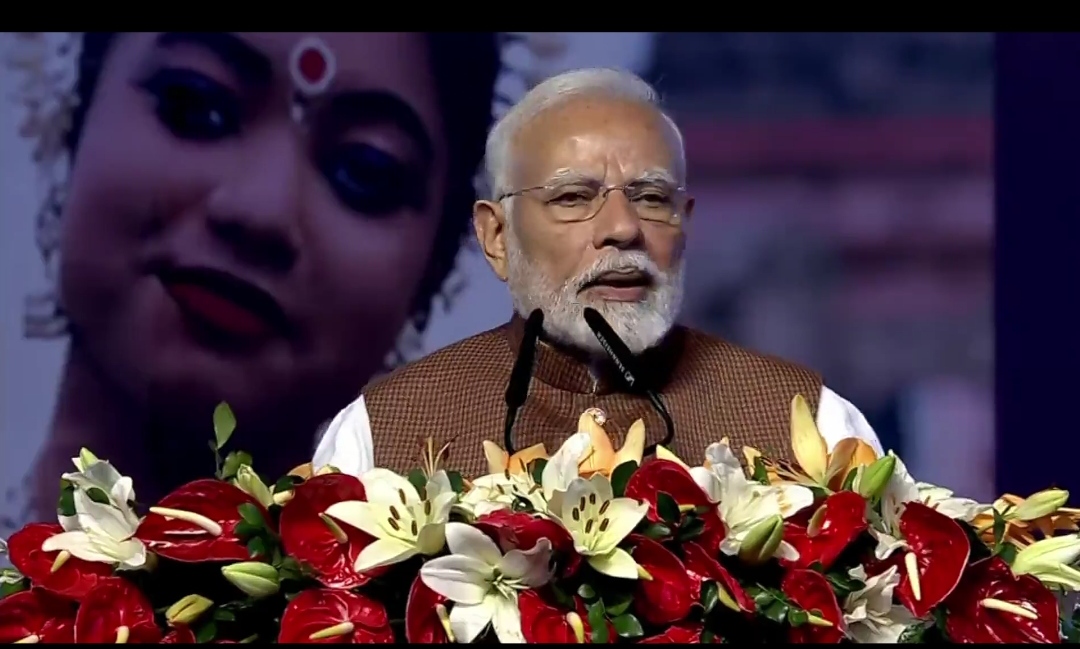PM Modi Launches Rs 48,520 Crore Development Projects in Bihar, Highlights Growth, Security, and Social Welfare.
Karakat, Bihar:
Prime Minister Narendra Modi laid the foundation stone and dedicated to the nation multiple development projects worth more than Rs. 48,520 crore during a public event held in Karakat, Bihar. Addressing a large gathering, the Prime Minister highlighted the central government’s ongoing commitment to accelerating Bihar’s development across sectors such as infrastructure, energy, transportation, agriculture, and social welfare. He expressed gratitude to the people of Bihar for their support and reaffirmed that their aspirations remain a top priority for the government.
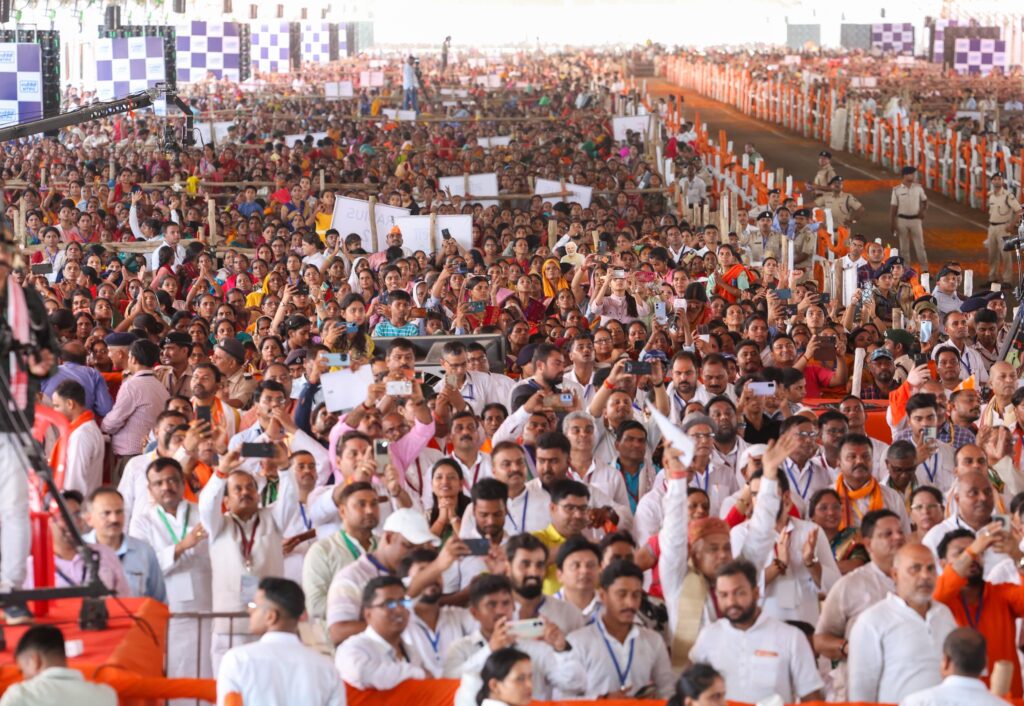
During his address, the Prime Minister emphasized the importance of infrastructure in transforming lives. He noted that the long-standing demand for the modernization of Patna Airport had now been fulfilled with the inauguration of a new terminal building capable of handling one crore passengers annually. He also announced that Rs. 1,400 crore is being invested in the development of Bihta Airport, further enhancing air connectivity in the region. Highlighting improvements in road and rail infrastructure, Modi spoke about the rapid development of four-lane and six-lane highways connecting key cities such as Patna, Buxar, Gaya, and Bodh Gaya. He also mentioned the ongoing construction of the Patna–Ara–Sasaram Greenfield Corridor and several new bridges being built over the Ganga, Son, Gandak, and Kosi rivers. These projects are expected to significantly improve travel, trade, and tourism in the state.
In the area of rail transport, the Prime Minister said that Bihar is witnessing the transformation of its railway infrastructure. The state has received world-class Vande Bharat trains, and multiple railway lines are being doubled and tripled to accommodate increasing demand. Areas like Chhapra, Muzaffarpur, and Katihar are seeing rapid progress in railway development. Over 100 trains now halt at Sasaram, boosting regional connectivity. The Prime Minister noted that these developments, which should have been completed years ago, were delayed due to previous governments’ mismanagement and corruption in recruitment processes. He urged the people of Bihar to remain vigilant and not be misled by false promises made by former regimes.
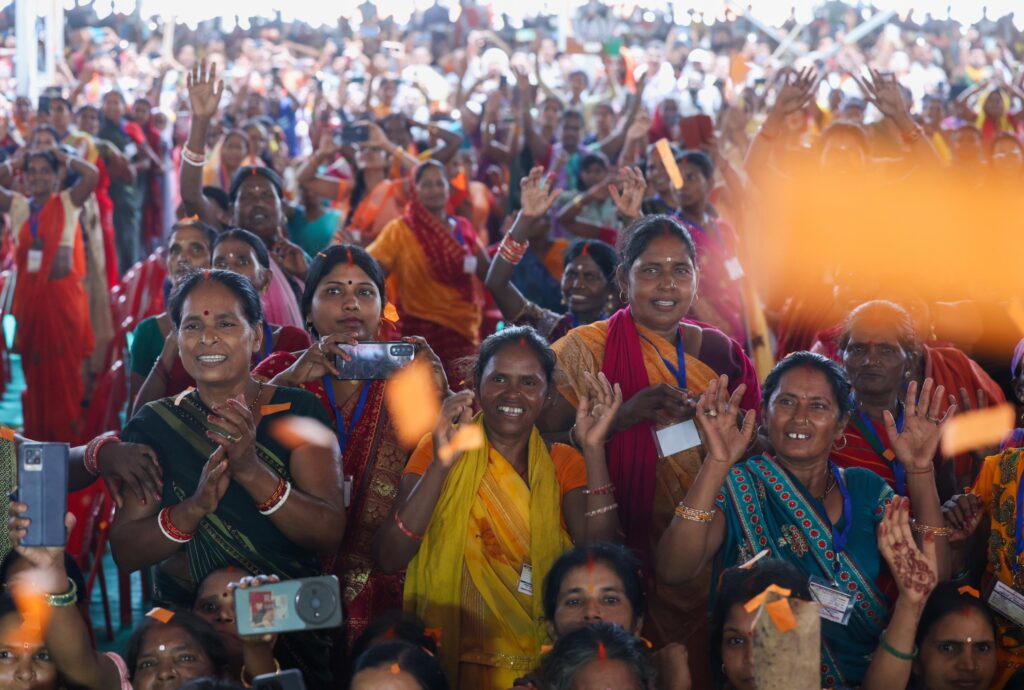
Emphasizing the importance of power supply in ensuring industrial growth and quality of life, Modi announced that a major NTPC power project is underway in Nabinagar with an investment of Rs. 30,000 crore. Once completed, the project will supply 1,500 megawatts of electricity to Bihar. In addition, new thermal power plants are being set up in Buxar and Pirpainti. The Prime Minister also highlighted Bihar’s shift toward renewable energy, including the development of a solar park in Kajra under the PM-KUSUM scheme. Through solar-powered agricultural feeders, farmers are not only receiving reliable electricity but also getting opportunities to earn additional income.
Modi also focused on the rural economy and agricultural reforms. He noted that over 75 lakh farmers in Bihar are receiving financial assistance under the PM-KISAN Samman Nidhi scheme. He announced the establishment of the Makhana Board and mentioned that the Makhana produced in Bihar has now received a Geographical Indication (GI) tag, helping farmers access better markets. The government has also approved the setting up of a National Institute for Food Processing in Bihar, further promoting agro-based industries. He said that the recent increase in Minimum Support Prices (MSP) for 14 Kharif crops, including paddy, will ensure higher incomes for farmers.
The Prime Minister spoke about national security and referred to the recent terrorist attack in Pahalgam. He reminded the gathering that he had made a pledge to bring those responsible to justice and confirmed that this promise was fulfilled through a successful military operation. He stated that hideouts of terrorists, protected by the Pakistani military, were destroyed within minutes by Indian forces. He described this action, codenamed “Operation Sindoor,” as a testament to India’s strength and resolve. He paid tribute to BSF Sub-Inspector Imtiaz, a brave son of Bihar, who was martyred while performing his duties at the border, and commended the courage of BSF personnel who serve as the nation’s first line of defense.
Modi also addressed the issue of Maoist violence, recalling the fear and underdevelopment that once gripped districts like Sasaram and Kaimur. He said that since 2014, the government has worked systematically to restore peace and bring development to Naxal-affected areas. He noted that the number of affected districts has come down from more than 125 to just 18. He added that roads, mobile connectivity, schools, and hospitals have now reached areas that were once dominated by left-wing extremists. He expressed confidence that Maoist violence would be entirely eradicated in the near future, ensuring that peace, security, education, and development reach every village.
The Prime Minister criticized the opposition for failing to provide genuine social justice during their time in power. He stated that while the previous regimes spoke of justice, the people of Bihar—especially Dalits, backward classes, and tribal communities—lived without access to basic amenities like housing, sanitation, and banking. He said that these communities were denied dignity and opportunities, and questioned whether showcasing Bihar’s poverty to foreign delegations was ever an act of social justice. He contrasted this with his government’s approach, which focuses on empowering people through direct delivery of welfare schemes.
Modi noted that four crore houses have been built, 12 crore families now have access to tap water, and three crore women have become financially independent under the Lakhpati Didi initiative. He highlighted that every citizen above the age of 70 is now entitled to free medical treatment worth up to Rs. 5 lakh. He also mentioned that free ration is being provided every month to eligible families across the country.
He appreciated the launch of the Dr. Bhimrao Ambedkar Samagra Seva Abhiyan in Bihar, aimed at delivering 22 essential government schemes directly to Dalits, Mahadalits, backward classes, and the poor through village-level camps. He said that over 30,000 such camps have already been organized and lakhs of citizens have been linked to various welfare schemes.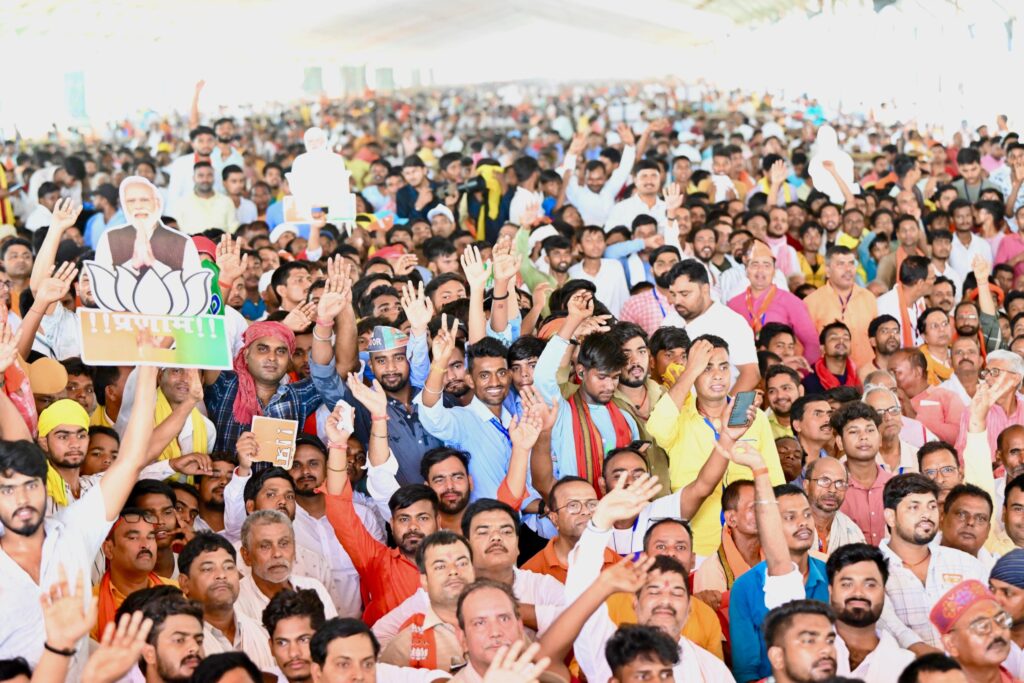
In conclusion, the Prime Minister stated that the government’s goal is to build the Bihar envisioned by leaders like B.R. Ambedkar, Karpoori Thakur, Jagjivan Ram, and Jayaprakash Narayan. He emphasized that the development of Bihar is essential for the development of India and expressed confidence that with the support of the people, the pace of growth will continue to accelerate. He congratulated the citizens of Bihar for the launch of these transformative projects and assured them that the government will continue working tirelessly for their progress and prosperity.

